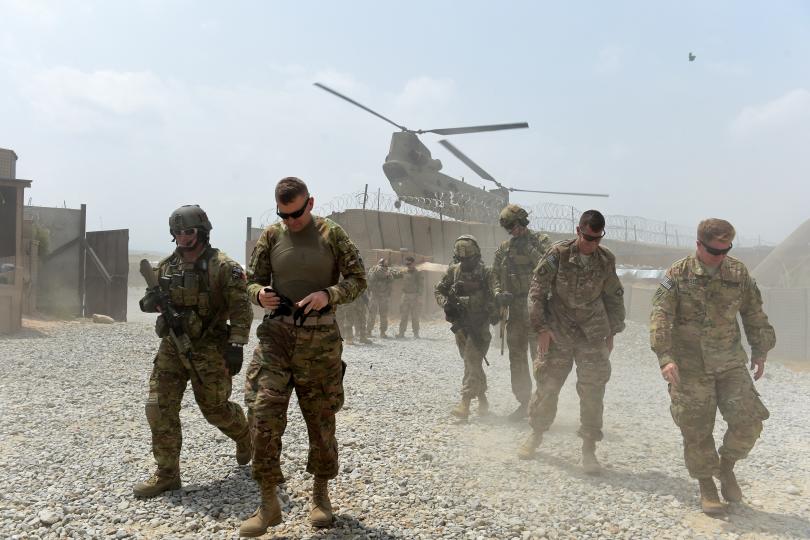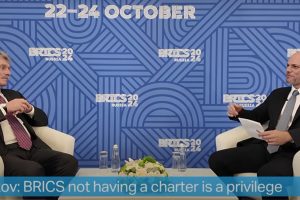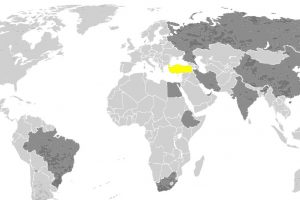In medical science, multiple organ dysfunction syndrome (MODS) is a process rather than a single event. Slowly, a person’s liver starts to dysfunction, kidneys stop functioning, cardiovascular instability occurs, pressure increases on the ventilation system, and the death of the cells occurs in the gut. Doctors call it irreversible organ failure. When you have such a condition in multiple organs, they intervene to achieve what they call a homeostasis, a relatively stable equilibrium between interdependent body parts.
Likewise, American policies on almost all fronts and all counts are failing, and they need a radical intervention.
Everything started when then-President George W. Bush declared the “war on terror” on Sept. 16, 2001 as a response to the four terrorist attacks by the terrorist group al-Qaida on the U.S. on that fateful morning of Tuesday, Sept. 11, 2001. Despite the fact that the chairman of the Joint Chiefs of Staff criticized the term, and later President Obama explicitly rejected and declared that the “war on terror” had been terminated, the war America started has been going on since then. The casualties of the U.S. Armed Forces have reached tens of thousands and more than 100,000 injured. The losses of the Afghans, Iraqis, Syrians, Yemenis and Somalis have reached 20 million according to Nicolas J S Davies, the author of “Blood On Our Hands: the American Invasion and Destruction of Iraq.” What did the U.S. achieve with this war? Today al-Qaida is more active in more territories than ever. It evolved into a more atrocious killing machine. Take a look at the scene of the most recent bloodbath at Bir al-Abed in northern Sinai. It was so brutal that even the ambulances came under fire.”
The same U.S. policy in Iraq has left the country crippled economically, socially and politically. The men and women who gave us the “war on terror” had also drawn a new map of the Middle East to replace the ill-gotten and never fully implemented Skyes-Picot map. President Bush’s war hawks would like to dismember Iraq and create an independent Kurdistan. The author of this plan, Robert Kagan, a senior fellow who is now warming his hindside as an expert of “International Order and Strategy” in the cozy rooms at the Brookings Institute while 16-year-old girls are being killed in the terror attacks on the Turkish-Iraqi border. Mr. Kagan promised Kurds an independent homeland while they were enjoying a new level of development in the autonomous Kurdistan Regional Government (KRG) area. Kurds believed Bush’s neo-cons. Now they are about to lose that autonomy, too.
Obama declared that the U.S. would not act as a global gendarmerie but had not even bothered to fire those neo-cons from the government. They furthered their Iraqi plan with a Kurdish corridor in Syria. They hoped that the oil the new Kurdish state produced would flow to the Mediterranean from the independent Syrian Kurdistan, which would of course merge with its Iraqi brethren, thus providing a further security belt for the greater Israel. Turkey, Iran and Russia put an end to these farcical neo-con dreams. Their plans for Syria have failed, too.
On top of these half-backed plans, came President Donald Trump’s son-in-law, Jared Kushner, with a new blueprint in his hands. It was called mending the relationship between the Arab countries and Israel. An ambitious young prince in Saudi Arabia could do it in exchange for U.S. support for his becoming the king. So he had issued a memorandum to Qatar, which, everybody feared, could have followed an invasion and fratricide. Thanks to President Recep Tayyip Erdoğan, Turkey’s display of support and sending, although symbolic, additional troops to Qatar, the Kushner-Mohammed plan nosedived in no time.
If this is not a total failure of all policies on all fronts, then what is? Thank heavens, President Trump seems to have noticed it. His decision to stop arming terrorist organizations in Syria might be the beginning of an intervention that will bring a political homeostasis to the region.
*This article was first published in Daily Sabah in 27 November 2017







Add Comment